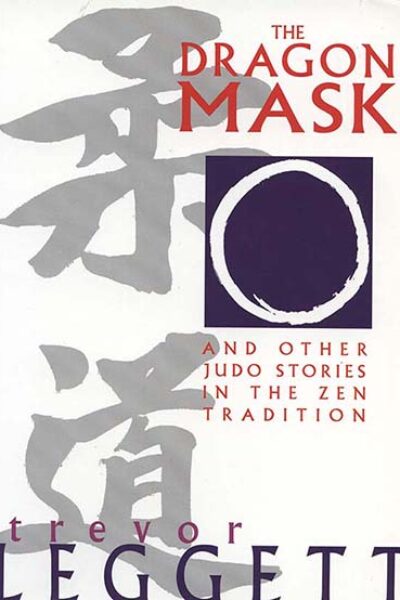The Dragon Mask

Book description
In 50 absorbing Judo stories in the Zen tradition drawn from a lifetime of experience in Europe and the Far East, Trevor Leggett shows that Judo is a training for life. Whilst they are in themselves entertaining, informative and even surprising, underneath each one is a wider application that can reach to the heart of our lives.
Paperback published by Ukemi Productions Ltd
ISBN 9780995472686
Price £5.99
Book extract
Beginners
One of my early lessons in the spirit of judo came when I had been practising for about six months. I was sitting on the edge of the mat, watching two beginners take their grading contest. Watching them was a boring business, and I was whispering to my next door neighbour about something else. I knew there was nothing to be learnt from a couple of absolute beginners. The referee, who was also my teacher, was walking round the mat as referees do. My neighbour had just said something a bit funny, and I was grinning as I half turned and whispered back to him. Suddenly I felt a kick in my side. We are not used to that sort of thing, and I nearly got up and walked out of the place. Still, I was very keen on judo, and I managed to go on sitting as if nothing had happened, but inwardly fuming.
After the contests were all over, this Japanese teacher came up to me. I imagined several things he might say, but I could never have imagined what he did actually say. It was: ‘You think you have nothing to learn from beginners – but I learn from them. I study their judo. Sometimes one of them has, naturally, a very good movement, from which I can learn. Don’t think you can’t learn too.’
It was some years before I fully understood what he meant. The realisation came slowly. Some time after that incident I was again watching from the edge of the mat when the two names were called for a contest. One man was big and strong, but clumsy; the other was wiry and fairly skilful, but much lighter. (In those days there were no weight categories). The same tutor was there, but this time he was not the referee, and we were standing together by the side of the mat. He said to me:
‘Which one do you think will win?’ I had no idea at all, and said so. He said: ‘The light one will be able to control the big one for a few minutes; then when the big one gets tired, the other one will throw him.’ It happened just as he said. The big one plunged about like an elephant, but the thin one managed to survive all the attacks. Then after about four minutes, the big one began to slacken, and the lighter one managed to catch him with an ouchi-gari (minor inner-reap).
The teacher told me afterwards: ‘You don’t know which side is going to win because you don’t study. You only think of your own judo. And while you go on like that, your judo will be useless.’ I was not very pleased at this comment, but I began to see the force of it. When I began to try to predict the result of a contest, I realised how shallow my judo knowledge and judgement were. I never did get much good at it, though I made some progress.
Some judo champions do not study the judo of others. So they can teach only pupils whose physique and movement are just like their own. To become a good teacher, one must be interested in the potentialities of judo practised by all kinds of judoka (judo players) and not just what is effective for one particular type.